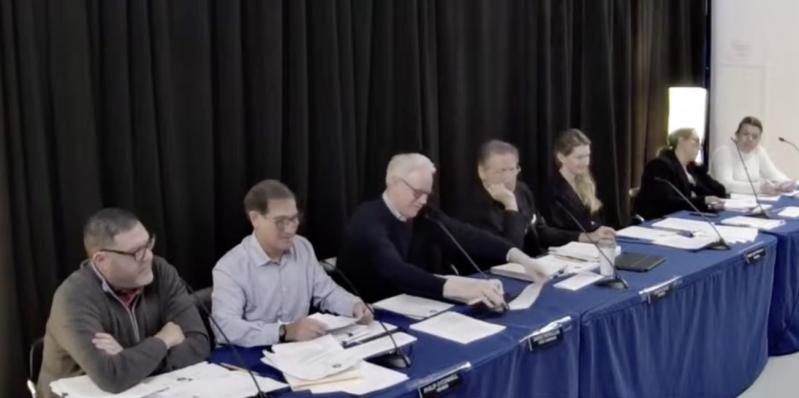The long-running matter of Harry Macklowe’s Georgica Pond property was again before the East Hampton Village Zoning Board of Appeals on Friday, ending this time in a unanimous vote that is unlikely to satisfy the homeowner and will likely be appealed.
The case goes back five years, to when the Z.B.A. declined to give Mr. Macklowe retroactive approval for a series of improvements, finding instead that he had overcleared his lot and expanded on structures that were too close to wetlands.
Mr. Macklowe, a developer, responded with a lawsuit. In April 2023, a Suffolk County Supreme Court judge upheld the Z.B.A.’s decision, but asked the board to clarify certain improvements on the property that were not, said the court, clearly addressed in the original decision.
In November 2023, the village planner, Billy Hajek, sent the board a memo saying that by comparing a 2017 certificate of occupancy, issued when Mr. Macklowe purchased the property, with a survey from July 2019, it was easy to determine what changes had been made.
Certain changes pre-dated the village wetlands code, he wrote, and were allowed, such as a garage and a swimming pool. However, because other structures, which had been exempted from Z.B.A. oversight, had been altered, those structures were once again subject to the board’s scrutiny.
Mr. Hajek expanded on the memo at Friday’s meeting. “The patios around the swimming pool were enlarged; the patios in front of the house were enlarged; a staircase was enlarged; retaining walls were all changed and enlarged; some grading was done. A lot of clearing activities occurred,” he told the board.
The board had started to vote when Mr. Macklowe’s lawyer, Linda Margolin, stood up from the audience. “Excuse me,” she said. “I was informed that there would be no hearing or testimony, but you just allowed the village planner to speak.”
“That was just a clarification for the board member,” said James McMullan, acting as chairman in lieu of John McGuirk, who was absent.
“Some of Mr. Hajek’s conclusions are based on measurements that were disputed by the applicant,” Ms. Margolin responded. “You’re taking the planner’s testimony as credible.”
She had written the board last month to say that “the Zoning Board of Appeals, in acting on the court’s remand, must schedule a reopened public hearing, not merely an agenda appearance for a determination, and receive new evidence from the applicant.”
But Lisa Perillo, the village attorney, was having none of it. In a letter to Ms. Margolin dated Feb. 9, she replied that “the limited task now before this Board is not a forum to revisit matters that have been fully and finally decided or that otherwise could only have been addressed in an appeal that has been abandoned.”
The board voted unanimously that Mr. Macklowe needed approval for the items Mr. Hajek concluded had been improperly expanded. The determination will be filed in March, after which an appeal by Mr. Macklowe’s legal team is probable, though not yet confirmed.




